Let’s be honest.
Perks, posters, and pizza Fridays don’t change culture.
Neither do rebranded values, annual surveys, or wellbeing weeks dressed up as transformation. Too many organisations have relied on “engagement initiatives” that look impressive in board packs but feel hollow in reality.
The result? Exhaustion. Not from change itself — but from being excluded from it.
Because transformation doesn’t start with systems, structures, or timelines – it starts with how people think.
That’s why the Go M.A.D.® Results Framework isn’t just a delivery tool. It’s a thinking catalyst. One that helps organisations lead real change – from the inside out.
The Hidden Cost of Culture Fatigue
Culture change fatigue is the silent drain on performance. It surfaces as apathy, cynicism, and quiet resistance.
HR leaders are often stuck in the crossfire — squeezed between executives demanding a quick fix and employees rolling their eyes at yet another initiative that changes nothing.
When culture feels like something done to people rather than with them, they switch off. They disengage. They wait for the next leadership fad to blow over.
This is not a communication problem.
It is a thinking problem.
The Consequences of Cosmetic Change
- A public sector organisation refreshes its values and unveils glossy posters. Without involvement, the campaign lands flat. Trust and energy stay stubbornly low.
- A global business launches a series of upbeat engagement events — yet avoids addressing toxic leadership behaviours. Exit interviews expose the truth.
- An HR team rolls out wellbeing apps, but workload pressures remain untouched. Burnout rises while app usage plummets.
Surface-level tactics create the illusion of progress but leave the real issues unresolved. Culture isn’t painted on walls — it’s practised in daily conversations, choices, and ways of thinking.
What Progressive HR Leaders Do Differently
The HR leaders who move the dial understand one truth: culture lives in the quality of thinking across the organisation.
Here’s how they build momentum that lasts:
- Build a coaching culture through better conversations.
Leaders are equipped to ask questions that provoke reflection, unlock ownership, and create shared responsibility. - Involve people in shaping change.
Culture is co-created, not rolled out. Contribution replaces compliance. - Link behaviours to meaningful results.
Vague aspirations don’t inspire. Tangible progress in things that matter does. - Prioritise psychological safety.
When people feel safe to challenge and suggest, commitment follows. - Protect time for thinking.
Sustainable performance depends on high-quality thinking, not just relentless delivery. - Insist senior leaders role model possibility.
What the top team believes, says, and does sets the cultural tone. No shortcuts.
Case in Point: Changing Culture One Conversation at a Time
An NHS Trust faced a familiar issue: unproductive meetings and ineffective one-to-ones that wasted time and drained energy.
Instead of rolling out another “engagement campaign,” they invested in developing 40 ThinkOn® Master Coaches. Armed with a practical problem-solving toolkit and a clear 12-point plan, these leaders transformed conversations across the organisation.
The impact?
- Sharper, more purposeful dialogue
- A cultural shift driven by mindset, not policy
- Continuous improvement owned by the people closest to the work
They proved that when you change how people think, speak, and interact, you change culture — one conversation at a time.
The Challenge for HR Leaders
Here’s the hard truth: culture will not shift through appearances.
It shifts through choices, conversations, and thinking — every day.
So the question is not “What’s our next engagement initiative?”
The real question is: “How do we involve our people in thinking differently about the results we need to achieve together?”
That’s the work. That’s the opportunity. And that’s how culture fatigue turns into culture momentum.







